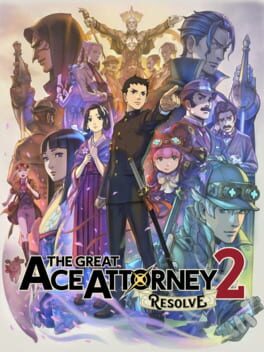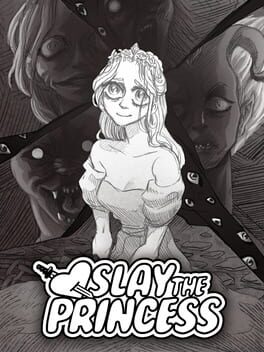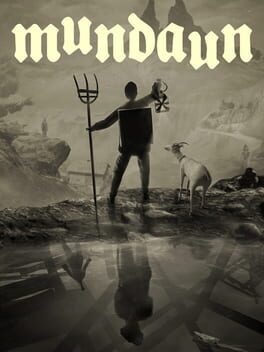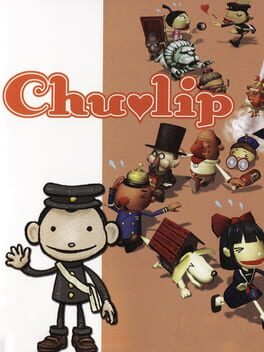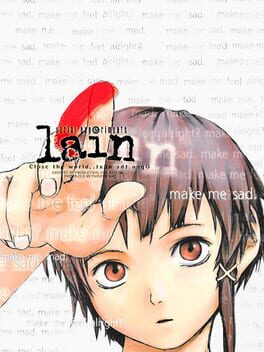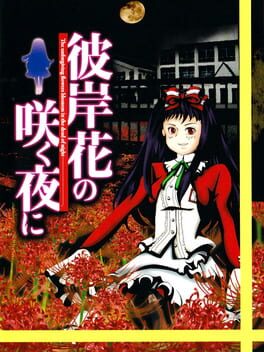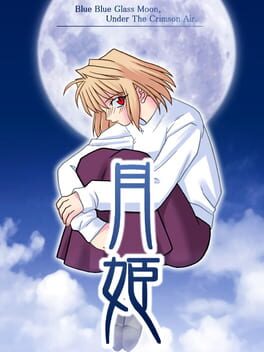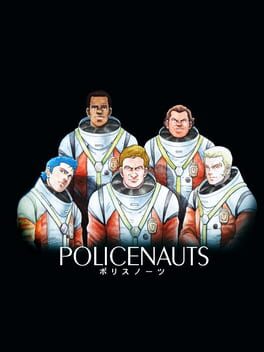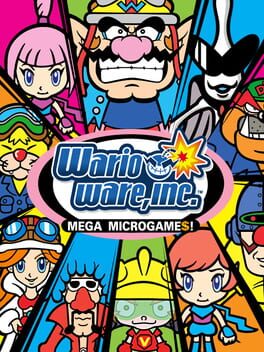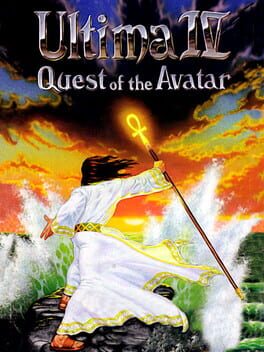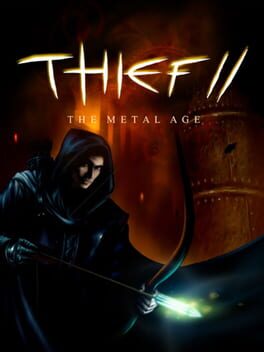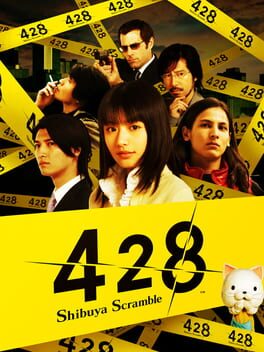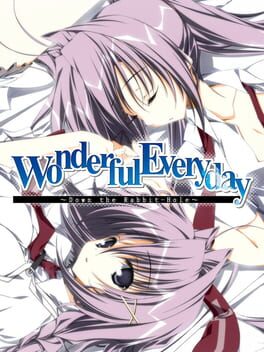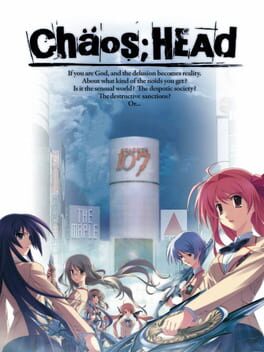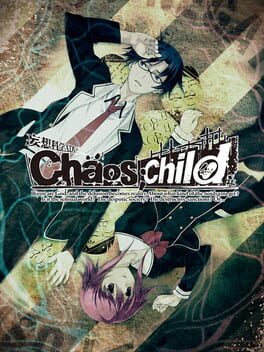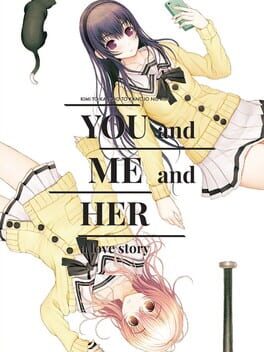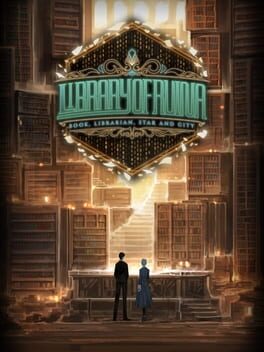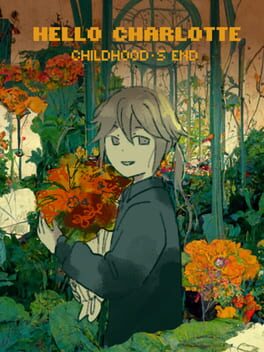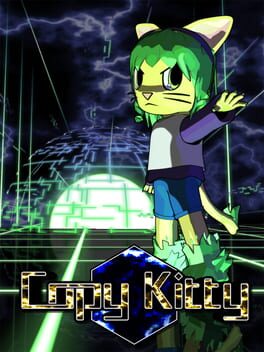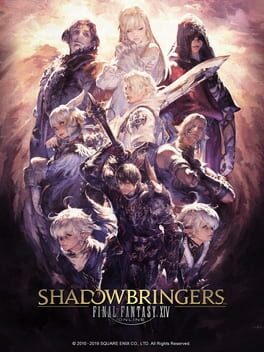prime4illusion
32 reviews liked by prime4illusion
Silent Hill 2
2001
An example of turn of the century obsessions in Japanese art about mental instability and suicidality with the extremity of its lugubrious design inhabiting that sense of annihilation. The intrigue that raises after playing is that I'm unsure if its dramatics would be as profoundly felt if its presentation exhibited them more directly. There is a potential broadness to the events it implements when compositing the characters in relation to these harrowing topics. I wouldn't be interested in Silent Hill 2 if it extended into its narrative details beyond genre mystery. However, if the work produces such a punishing effect, that's only further proof that form reigns as art's true expressivity, as thing can't be isolated from their presentation. The past situation is the source of the game's narrativity. The paulatine revelation of the details implicated in the trial subordinating James. Those are more important for decoding characters than anything in the present tense, as all gets rendered metaphorical. The past blends with imagination and creates a distortion of the spatial navigation, the player's most recurrent activity. It is a distortion responding less to geographical coherency but a psychosexual cartography ridden by guilt and self-deception, guided by the diegetic representation through Maria of James' desire for making his image of his wife persist beyond the complication behind the person we never get to see, an exaggeration of the woman she yearned over the one her wife was. There lies the notion that a true understanding of a mind comes from taking into equal consideration fantasies, memories and anything that remains liminal and rather obscure if we determined it with exactitude as belonging to these correspondent registers. Even the speculative power of sound, as it signals unrecognizable factors without resolving them as they exist purely for the intensity of nurturing paranoia complements its perspective on cognition. Everything finds a unity in this sublimation of sin through hyperbole where plights transform into horror. An imprisonment where all characters, as well as the very enviroment, directs James to confront himself. A grotesque mirror that gazes back to show all its monstrosity. And our own comprehension as players inhabiting James displays a distance between our shared knowledge, as his deception makes him even admittedly unreliable in his rationalization of his deeds. The question motivating the player becomes less about the possibility of reencounter, as we're certain about Mary's death, but about what were the circumstances that confronted the couple requiring James for observing to his responsability in what happened, searching for the reason why he must endure punishment. The metaphor about the literal battle against fears might sound trite, but the act in the experience of falling deeper into the abyss, persevering against these terrors as we complete the image about James' culpability and disgusting feelings, is what makes it so atmospherically remarkable. An achievement in synchronity between narrative contracts and ludic ones in the medium's equivalent to Tarkovsky's Solaris, the conception of a subjective space adapted to challenging the illusions created deceptively by our desires until they become untenable.
Despite being so much more ambitious than its predecessor in the scope of its ideas, this game's incessant reluctance to meaningfully explore them combined with an absolutely abysmal resolution makes it another disappointment. It's interesting— the way TGAA2 disappoints is very different from TGAA1. With the prior game, I just didn't feel it had a lot of compelling ideas at all. But its sequel is the opposite: the amount of unrealized potential this game contains is absolutely immense.
Susato has great setup in case 1. She seemingly has to confront that her society's restrictions on her gender and occupation prevent her from making meaningful change, fighting back against this by shedding both those perceived roles and proving her worth in court. In the end? She stays resigned to her assistant role forever, with a line in the epilogue suggesting she still ties her self-worth entirely to how well she can perform her societally expected role. Anything resembling setup for her never actually mattered.
Sholmes has great setup all throughout the game. He's frequently invasive and manipulative of other people, with this seemingly being built up as a conflict between him and the protagonists over how irreverently he treats the cases he's involved with. In the end? The conflict is solved by Sholmes telling them he was doing it all for the greater good, and it never gets brought up again, even if the logic he uses to justify himself borders on absurd and completely glosses over half the things he does. No character flaw for you!
Yujin has great setup in case 4. He fully admits to Ryunosuke that he's been a neglectful father, not paying enough attention to the emotional needs of either of his children, and merely distracting himself by going on adventures in London. He promises he'll explain everything. In the end? He explains nothing, and the game basically forgets this was ever a problem past the one time he spoke about it. The last case simply has him going on more wild London adventures with Sholmes, while Ryunosuke affirms he has "the most wonderful family in the world".
Stronghart has great setup in case 5. He explains his entire ideology. It's incredibly morally complex, it ties into the game's criticisms of nationalism, racism, and the media's desire for public spectacle, and it sets up a truly fantastic dilemma that Ryunosuke has to face. In the end? Ryunosuke refuses to even engage the tiniest bit with it. He proclaims that the TRUTH is the most important thing, that Stronghart has no ground to stand on because he's hiding from the TRUTH, and utterly ignores all nuance in the dilemma through arbitrary moralizing.
Every single one of the game's potential deeper meanings are sidestepped in favor of an agonizingly basic 'good vs evil' plot. And nothing exemplifies that more than the deus ex machina at the end of case 5, when Ryunosuke's saved by the same higher power he was just criticizing. It feels completely arbitrary what the game decides is good or bad.
TGAA2's best characters are almost exclusively the side characters in the earlier cases, who aren't propped up to serve a grand moral point, and instead feel like real humans with interesting and layered personalities. Case 2 is the game's best for that very reason. My opinion on this game is similar to my opinion on T&T: full of ideas that could make for an excellent story, but too afraid to ever meaningfully commit to those ideas. It feels like an unfortunate trend with Takumi's Ace Attorney games.
Susato has great setup in case 1. She seemingly has to confront that her society's restrictions on her gender and occupation prevent her from making meaningful change, fighting back against this by shedding both those perceived roles and proving her worth in court. In the end? She stays resigned to her assistant role forever, with a line in the epilogue suggesting she still ties her self-worth entirely to how well she can perform her societally expected role. Anything resembling setup for her never actually mattered.
Sholmes has great setup all throughout the game. He's frequently invasive and manipulative of other people, with this seemingly being built up as a conflict between him and the protagonists over how irreverently he treats the cases he's involved with. In the end? The conflict is solved by Sholmes telling them he was doing it all for the greater good, and it never gets brought up again, even if the logic he uses to justify himself borders on absurd and completely glosses over half the things he does. No character flaw for you!
Yujin has great setup in case 4. He fully admits to Ryunosuke that he's been a neglectful father, not paying enough attention to the emotional needs of either of his children, and merely distracting himself by going on adventures in London. He promises he'll explain everything. In the end? He explains nothing, and the game basically forgets this was ever a problem past the one time he spoke about it. The last case simply has him going on more wild London adventures with Sholmes, while Ryunosuke affirms he has "the most wonderful family in the world".
Stronghart has great setup in case 5. He explains his entire ideology. It's incredibly morally complex, it ties into the game's criticisms of nationalism, racism, and the media's desire for public spectacle, and it sets up a truly fantastic dilemma that Ryunosuke has to face. In the end? Ryunosuke refuses to even engage the tiniest bit with it. He proclaims that the TRUTH is the most important thing, that Stronghart has no ground to stand on because he's hiding from the TRUTH, and utterly ignores all nuance in the dilemma through arbitrary moralizing.
Every single one of the game's potential deeper meanings are sidestepped in favor of an agonizingly basic 'good vs evil' plot. And nothing exemplifies that more than the deus ex machina at the end of case 5, when Ryunosuke's saved by the same higher power he was just criticizing. It feels completely arbitrary what the game decides is good or bad.
TGAA2's best characters are almost exclusively the side characters in the earlier cases, who aren't propped up to serve a grand moral point, and instead feel like real humans with interesting and layered personalities. Case 2 is the game's best for that very reason. My opinion on this game is similar to my opinion on T&T: full of ideas that could make for an excellent story, but too afraid to ever meaningfully commit to those ideas. It feels like an unfortunate trend with Takumi's Ace Attorney games.
Slay the Princess
2023
Mundaun
2021
Mundaun’s first-person horror threats are recurring, and increase in number as the game progresses, and yet it retains the feeling of a walking sim. I mean this in the positive sense of environmental specificity, of wandering a landscape saturated in a history that precedes us, and which reveals itself in small, partial ways as we traverse it. I also mean it in the sense of an environmental intimacy. There is a second-hand nostalgia given to us by our virtual body (Curdin), who is prone to personal reminiscences as we uncover Mundaun’s mysteries together in real-time. This is to say the game conditions us to experience its landscape as both alien and profoundly intimate, and it is the intimacy that is most charged with folk-horrific dread. For the player who frequently feels as though there is a strange force watching them from within the world of the walking sim, Mundaun’s dread is most welcoming.
By capturing us in reminiscence and providing us with real-time tangible threats, Mundaun makes pronounced the strange negotiations of gamic tense. When I feel as though this is a walking sim, I consider my efforts oriented to the recovery of some past hidden in the landscape; when I feel as though it is survival horror I am attuned to the anxiety of the instant. This is not in itself novel — any game with attention to its world balances the time before us (past) with the time of action (now) — but Mundaun amplifies this tension through the strength of its environmental intimacy and the beckoning of its reminiscence within the horror format. That is its narrative, like its enemies, unfolds in real-time. Curdin has returned to his grandfather’s village for his funeral, and this return precipitates the series of events that is Mundaun. We talk to its inhabitants, run errands, solve puzzles, our actions all assisting in the progression of a narrative that has not yet occurred. And yet because of the game’s mood, the narrative still to come seems always already lost in the past. Who are these people? Are they still alive? Who attends Jeremias’ (the priest’s) sermons? H.R., the talking corpse in the snow? Walther, deep in his forgotten wartime bunker? The spectral Flurina? Playing Mundaun is wandering a buried village, its inhabitants trapped and reenacting the ghost story that binds them to this beautiful, tragic mountain village. In the end they asked me to return, but in the light of day I saw it for what it was. It’s over, I thought, forever now.
In terms of how it plays with or without this doomed mood, Mundaun’s enemies are consistent with its local geography, staggering through the hills. The hay creatures are frightening because they look like the haystacks we keep passing, and because their idiot-physicality gives them a sense of random, thoughtless weight more dreadful than a human-like intelligence. The beekeepers on the other hand hover — something I didn’t realise until I got too close, and which promptly brought to mind the haunting image of the Blair Witch “whose feet never touched the ground”. Both in their own way make our adoptive body in Curdin feel particularly leaden, and ill-equipped to respond to the world and its demands. He becomes the little boy, gazing terrified out the window of his grandfather’s house, believing all at once his superstitions. Mundaun’s puzzles carve a linear path through the world, providing us tasks to advance the day so that narrative time can proceed. Most impressive is the way that, as the story comes together and its emotions are made to resonate, the developers maintain the same patience that welcomed us in. It becomes ‘big’ but it is never loud, scripted sequences takes over but it still pretends it’s off-kilter, about to fall apart. It’s so good that it never wants you to know quite how good it is.
There's something to be said that I can't quite figure out yet about the way we are 'cursed' on arrival. It is only when the Old Man grabs us, deforming our arm, that Mundaun opens itself to us. I've tried to put into words elsewhere how a similar maiming of the arm takes place in Resident Evil 7 — we are 'welcome(d) to the family' only after our arm is cut off and reattached, making us kin to the Baker family. Despite their significant differences (both as texts and in their treatment of the arm), Mundaun is similarly interested in the notion of homecoming as a kind of physical maiming. The simple pathos of this sets in when, departing on the bus, our business concluded in our grandfather's ghost village, we look down to see our arm still deformed. Perhaps this is the cost of 'being there' in the world of the game, our physical bodies conjoined with Curdin's, Curdin's with Mundaun. Or perhaps more generally it's the cost of reminiscence, memory being the wound that cannot heal.
By capturing us in reminiscence and providing us with real-time tangible threats, Mundaun makes pronounced the strange negotiations of gamic tense. When I feel as though this is a walking sim, I consider my efforts oriented to the recovery of some past hidden in the landscape; when I feel as though it is survival horror I am attuned to the anxiety of the instant. This is not in itself novel — any game with attention to its world balances the time before us (past) with the time of action (now) — but Mundaun amplifies this tension through the strength of its environmental intimacy and the beckoning of its reminiscence within the horror format. That is its narrative, like its enemies, unfolds in real-time. Curdin has returned to his grandfather’s village for his funeral, and this return precipitates the series of events that is Mundaun. We talk to its inhabitants, run errands, solve puzzles, our actions all assisting in the progression of a narrative that has not yet occurred. And yet because of the game’s mood, the narrative still to come seems always already lost in the past. Who are these people? Are they still alive? Who attends Jeremias’ (the priest’s) sermons? H.R., the talking corpse in the snow? Walther, deep in his forgotten wartime bunker? The spectral Flurina? Playing Mundaun is wandering a buried village, its inhabitants trapped and reenacting the ghost story that binds them to this beautiful, tragic mountain village. In the end they asked me to return, but in the light of day I saw it for what it was. It’s over, I thought, forever now.
In terms of how it plays with or without this doomed mood, Mundaun’s enemies are consistent with its local geography, staggering through the hills. The hay creatures are frightening because they look like the haystacks we keep passing, and because their idiot-physicality gives them a sense of random, thoughtless weight more dreadful than a human-like intelligence. The beekeepers on the other hand hover — something I didn’t realise until I got too close, and which promptly brought to mind the haunting image of the Blair Witch “whose feet never touched the ground”. Both in their own way make our adoptive body in Curdin feel particularly leaden, and ill-equipped to respond to the world and its demands. He becomes the little boy, gazing terrified out the window of his grandfather’s house, believing all at once his superstitions. Mundaun’s puzzles carve a linear path through the world, providing us tasks to advance the day so that narrative time can proceed. Most impressive is the way that, as the story comes together and its emotions are made to resonate, the developers maintain the same patience that welcomed us in. It becomes ‘big’ but it is never loud, scripted sequences takes over but it still pretends it’s off-kilter, about to fall apart. It’s so good that it never wants you to know quite how good it is.
There's something to be said that I can't quite figure out yet about the way we are 'cursed' on arrival. It is only when the Old Man grabs us, deforming our arm, that Mundaun opens itself to us. I've tried to put into words elsewhere how a similar maiming of the arm takes place in Resident Evil 7 — we are 'welcome(d) to the family' only after our arm is cut off and reattached, making us kin to the Baker family. Despite their significant differences (both as texts and in their treatment of the arm), Mundaun is similarly interested in the notion of homecoming as a kind of physical maiming. The simple pathos of this sets in when, departing on the bus, our business concluded in our grandfather's ghost village, we look down to see our arm still deformed. Perhaps this is the cost of 'being there' in the world of the game, our physical bodies conjoined with Curdin's, Curdin's with Mundaun. Or perhaps more generally it's the cost of reminiscence, memory being the wound that cannot heal.
Slay the Princess
2023
Shenmue
1999
Intermittently torturous, always detached, and Shenmue only improves in this regard two decades on. It is often cited as the open world urtext, but where Shenmue works in alienation the games it influenced put the player-character at the centre of the universe. In the Grand Theft Auto series the player moves in a reckless, fluid way, in stark contrast to the rigid and wandering NPCs — every frame explodes into being through our freedom, of movement, of decision, of infinite variety and eternal recurrence, and yet we are never allowed access to the patterns or behaviours of those around us. The very absence of an 'talk' button along with the sheer number of people spawned across the game environment has us intuitively accept that the world is that which we do — we are its God, its conductor. With Shenmue however, Ryo's body moves in this blocky, unwieldy way, and must fit into the whims and schedules of those around him. The game's day-night cycle seems to actively close rather than open opportunities, such as in cases where we are tasked with waiting tens of hours to meet certain people at certain times of day, and all Ryo's options for time-killing actively feel like time-killing (in the sense of time we know we will never get back) — throwing darts, visiting noodle houses, patting cats, watching the trees. There is no way to accelerate time's passing, and the only way to endure it is to actively make the time to enjoy the small things, which is to say reframing the story as the distraction and not the other way around. Still, as Zen as this all sounds, however beautiful the sunsets and poignant the broken swing by the stairs, Shenmue makes it so the player never feels as though they belong in it.
Every day begins and ends at the Hazuki Residence, in a curious disciplinary move that has us clumsily navigate a house that never becomes a home, waiting as Ryo puts on or takes off his shoes, before venturing into a world that similarly never opens up to him. The anonymous faces in Grand Theft Auto are props until they're activated by player action, reflecting the scale of cause and effect, but in Shenmue we are always trying to act according to the dominating logic of the world, making the people in it both obstacles that are necessary to progress the game, and ever-present reminders of our not belonging. If we see an 'interact' prompt appear near a stranger, Ryo is just as likely to receive some valuable information as he is to be, in the most polite way possible, called a creep and asked to leave. He can't jump or skip or even run through a door. He checks over his shoulder to make sure he's alone before exercising in the park. When Ryo sees someone else is using the stairs, he will wait until they get to the top before he even begins is ascent, one gets the sense out of discomfort rather than politeness. They have their routines and we don't have ours. This doesn't make us free, it makes us perpetually alone. An old woman asks Ryo for directions and says she'll wait at the park to hear from him. If the player forgets, the old woman can never be found again. How long did she wait? Did she find the place on her own? Is she okay? It's always like this, he's impossible, nobody knows who he is and neither does he. Even those who know Ryo's name expect something of him that he's failing to embody, and this sense of quiet failure permeates Shenmue in both the way the world is painted and the way it plays.
Interactions with friends and family remain at the level of surface courtesies, veiling a great sadness and isolation that hints at impossible rifts between each and every person. Nobody knows Ryo — he's always falling just short of being what others think they know of him, and on an entirely different course from what's expected in the long run. And looking to him for answers leads to an even more penetrating sense of absence, a passive neglect of others and a dead eyed embrace of tangible actions and information pathways where the insignificant is given significance, and significant actions are always underpinned by the mundane. He confronts gang members like a kid buying a toy, and he buys toys like he's finally found meaning in this world. The central ambiguity in Shenmue, and what makes it so affecting, is whether this suffocating sense of loneliness is inherent to the world or just Ryo, who as the game's protagonist paints the way it appears to us. Is there a difference? When he is showed great generosity by Fuku-San, Ryo's unreadable face casts a cold negation of the gesture, making the other person seem comically, embarrassingly over-expressive. But it's Ryo who is embarrassing — his straightforward detective questioning, gullibility, and tonedeaf approach to human interaction make his journey less a myopic descent into obsession than a sort of hobby or project, a convenient opportunity for something to do. At one stage Nozomi asks Ryu about school, and we realise all this free time he has is the result of shirking a role that could give him some structure; some direction. In every sense he is out of sync: like Kyle MacLachlan's character in Blue Velvet no matter how successfully he works through the underbelly of his town he's only ever met with bemusement and confusion by the people he finds there. He can't be here, but he can't go back either. Once again the mechanic of Ryo's return to the Hazuki Residence reinforces every morning and every evening that there is no home for him. Shenmue is affecting because it forces us to play through, to physically enact this discomfort, while reading around Ryo that it is he who is the stranger.
The strangest and most subtly moving decision made is that the game's final act begins with Ryo taking on a job at the dock, driving forklifts. Where Ryo's physically cumbersome body spent weeks running around Dobuita, mangling interactions and finding ways to kill time, Ryo's dock work finally gives him purpose, a routine, and targets to meet. Throughout the rest of the game it is impossible to know whether one is making progress or floundering, but the dock work gives instant feedback in the form of quotas and bonus cheques reflecting efforts made. The forklifts also control with a fluidity uncommon in the rest of the game and reach speeds he can't on foot. Lunch breaks begin at the same time every day with a shot of Ryo sitting with his colleagues and eating; he could almost belong here. And because we're not waiting for time to pass but rather trying to do things in time, the way the skies change during the afternoon shift can at the docks be appreciated for how beautiful they are. Time becomes valuable, and as it passes it fills the scene with warmth before it leaves. Despite the routinised action or perhaps because of it, it is clear there will never be another day exactly like this one. One afternoon Ryo sees Nozomi at the docks taking photos and there is this confronting atmosphere because Ryo for the first time sees himself in the face of someone who recognises what he's doing — not for what his family represents or what anyone thinks he should be doing, but for what he is doing as he works at the dock. This is followed by a strange and beautiful sequence where Ryo's and Nozomi's photograph is taken twice, and Ryo must pick one to take away. One makes it appear as though they are lovers, the other, total strangers, and clearly the truth is somewhere in between. This moment of self-presentation to someone who matters is immediately turned into a fiction, or perhaps memorialised as a future that can never be between two people, one who doesn't know who she is but knows what she wants, the other a blank surface reflecting back everything indeterminate, everything unsure, everything anxious about the one unfortunate enough to look. He is in short a negation.
As the year wraps up, the uncaring faces increase in volume, and many of the familiar ones say they're going away. Ryo's neighbourhood, already a quietly lonely place, comes to feel like a ghost town of dead end interactions and suspended time — a place simultaneously too big and too small to sustain life. Ryo's dispassionate movement through Yokosuka is curious, because he is not the one feeling these things. Everything to him is information, and if that information leads abroad, so be it. He doesn't care one way or another, but we do. That Yokosuka is framed as a place that is already dead and in the process of being remembered must then belong to somebody else, someone who is remembering the story as Ryo tells it. Indeed as others try to reach out for him it becomes clear that it is not the town that is the ghost, but Ryo, that figure once present and well liked but who died one day and now glides through with blank eyes, forever out of time and place.
Without the language of Chinese cinema the story is simplistic and weird, but its grandiose animated dreams and talks of fate cut an effective threshold between the exhaustingly quotidian world of Shenmue and its mythic aspirations. Its textures are uniformly dingy and wet looking but this adds to Ryo's sense of claustrophobia, and the alienating temporality of the game that insists we shouldn't be here. Indeed the construction of the New Yokosuka Movie Theatre that will never be finished, and dig site and Sakuragaoka suggest the world will keep moving once we leave but can't start until that happens. The ability to talk to people who will only offer 'Sorry I don't feel like talking' leads to disappointment before its themes of isolation become clear. The animations haven't aged well but the offbeat rhythms of the game work its visuals into an uncanny space both otherworldly and uncomfortably familiar. It's also occasionally gorgeous by any standards: in one scene on a motorbike Yu Suzuki manages an extended reference to Wong Kar-wai's Fallen Angels and, short a bloom effect to mimic that director's blurry expressionism, simply layers brake light colours across the screen. I'll admit I lost my breath for a full minute: the absence of a bleeding light for a strange, rigid, suspended rendering of abstract human emotion might be the game in a single wonderful image.
Every day begins and ends at the Hazuki Residence, in a curious disciplinary move that has us clumsily navigate a house that never becomes a home, waiting as Ryo puts on or takes off his shoes, before venturing into a world that similarly never opens up to him. The anonymous faces in Grand Theft Auto are props until they're activated by player action, reflecting the scale of cause and effect, but in Shenmue we are always trying to act according to the dominating logic of the world, making the people in it both obstacles that are necessary to progress the game, and ever-present reminders of our not belonging. If we see an 'interact' prompt appear near a stranger, Ryo is just as likely to receive some valuable information as he is to be, in the most polite way possible, called a creep and asked to leave. He can't jump or skip or even run through a door. He checks over his shoulder to make sure he's alone before exercising in the park. When Ryo sees someone else is using the stairs, he will wait until they get to the top before he even begins is ascent, one gets the sense out of discomfort rather than politeness. They have their routines and we don't have ours. This doesn't make us free, it makes us perpetually alone. An old woman asks Ryo for directions and says she'll wait at the park to hear from him. If the player forgets, the old woman can never be found again. How long did she wait? Did she find the place on her own? Is she okay? It's always like this, he's impossible, nobody knows who he is and neither does he. Even those who know Ryo's name expect something of him that he's failing to embody, and this sense of quiet failure permeates Shenmue in both the way the world is painted and the way it plays.
Interactions with friends and family remain at the level of surface courtesies, veiling a great sadness and isolation that hints at impossible rifts between each and every person. Nobody knows Ryo — he's always falling just short of being what others think they know of him, and on an entirely different course from what's expected in the long run. And looking to him for answers leads to an even more penetrating sense of absence, a passive neglect of others and a dead eyed embrace of tangible actions and information pathways where the insignificant is given significance, and significant actions are always underpinned by the mundane. He confronts gang members like a kid buying a toy, and he buys toys like he's finally found meaning in this world. The central ambiguity in Shenmue, and what makes it so affecting, is whether this suffocating sense of loneliness is inherent to the world or just Ryo, who as the game's protagonist paints the way it appears to us. Is there a difference? When he is showed great generosity by Fuku-San, Ryo's unreadable face casts a cold negation of the gesture, making the other person seem comically, embarrassingly over-expressive. But it's Ryo who is embarrassing — his straightforward detective questioning, gullibility, and tonedeaf approach to human interaction make his journey less a myopic descent into obsession than a sort of hobby or project, a convenient opportunity for something to do. At one stage Nozomi asks Ryu about school, and we realise all this free time he has is the result of shirking a role that could give him some structure; some direction. In every sense he is out of sync: like Kyle MacLachlan's character in Blue Velvet no matter how successfully he works through the underbelly of his town he's only ever met with bemusement and confusion by the people he finds there. He can't be here, but he can't go back either. Once again the mechanic of Ryo's return to the Hazuki Residence reinforces every morning and every evening that there is no home for him. Shenmue is affecting because it forces us to play through, to physically enact this discomfort, while reading around Ryo that it is he who is the stranger.
The strangest and most subtly moving decision made is that the game's final act begins with Ryo taking on a job at the dock, driving forklifts. Where Ryo's physically cumbersome body spent weeks running around Dobuita, mangling interactions and finding ways to kill time, Ryo's dock work finally gives him purpose, a routine, and targets to meet. Throughout the rest of the game it is impossible to know whether one is making progress or floundering, but the dock work gives instant feedback in the form of quotas and bonus cheques reflecting efforts made. The forklifts also control with a fluidity uncommon in the rest of the game and reach speeds he can't on foot. Lunch breaks begin at the same time every day with a shot of Ryo sitting with his colleagues and eating; he could almost belong here. And because we're not waiting for time to pass but rather trying to do things in time, the way the skies change during the afternoon shift can at the docks be appreciated for how beautiful they are. Time becomes valuable, and as it passes it fills the scene with warmth before it leaves. Despite the routinised action or perhaps because of it, it is clear there will never be another day exactly like this one. One afternoon Ryo sees Nozomi at the docks taking photos and there is this confronting atmosphere because Ryo for the first time sees himself in the face of someone who recognises what he's doing — not for what his family represents or what anyone thinks he should be doing, but for what he is doing as he works at the dock. This is followed by a strange and beautiful sequence where Ryo's and Nozomi's photograph is taken twice, and Ryo must pick one to take away. One makes it appear as though they are lovers, the other, total strangers, and clearly the truth is somewhere in between. This moment of self-presentation to someone who matters is immediately turned into a fiction, or perhaps memorialised as a future that can never be between two people, one who doesn't know who she is but knows what she wants, the other a blank surface reflecting back everything indeterminate, everything unsure, everything anxious about the one unfortunate enough to look. He is in short a negation.
As the year wraps up, the uncaring faces increase in volume, and many of the familiar ones say they're going away. Ryo's neighbourhood, already a quietly lonely place, comes to feel like a ghost town of dead end interactions and suspended time — a place simultaneously too big and too small to sustain life. Ryo's dispassionate movement through Yokosuka is curious, because he is not the one feeling these things. Everything to him is information, and if that information leads abroad, so be it. He doesn't care one way or another, but we do. That Yokosuka is framed as a place that is already dead and in the process of being remembered must then belong to somebody else, someone who is remembering the story as Ryo tells it. Indeed as others try to reach out for him it becomes clear that it is not the town that is the ghost, but Ryo, that figure once present and well liked but who died one day and now glides through with blank eyes, forever out of time and place.
Without the language of Chinese cinema the story is simplistic and weird, but its grandiose animated dreams and talks of fate cut an effective threshold between the exhaustingly quotidian world of Shenmue and its mythic aspirations. Its textures are uniformly dingy and wet looking but this adds to Ryo's sense of claustrophobia, and the alienating temporality of the game that insists we shouldn't be here. Indeed the construction of the New Yokosuka Movie Theatre that will never be finished, and dig site and Sakuragaoka suggest the world will keep moving once we leave but can't start until that happens. The ability to talk to people who will only offer 'Sorry I don't feel like talking' leads to disappointment before its themes of isolation become clear. The animations haven't aged well but the offbeat rhythms of the game work its visuals into an uncanny space both otherworldly and uncomfortably familiar. It's also occasionally gorgeous by any standards: in one scene on a motorbike Yu Suzuki manages an extended reference to Wong Kar-wai's Fallen Angels and, short a bloom effect to mimic that director's blurry expressionism, simply layers brake light colours across the screen. I'll admit I lost my breath for a full minute: the absence of a bleeding light for a strange, rigid, suspended rendering of abstract human emotion might be the game in a single wonderful image.
Chulip
2002
(i put some hot tips on playing chulip at the end of this review and i beg you to look at them, if nothing else here, if you are planning to play this!!!!)
moon, chulip's predecessor that laid the foundation for its general gameplay and writing style, is a game about "love" in a broad sense. you must observe people, hear their thoughts on things/others, give items, and practice good timing and patience while each tick of the timer brings you closer to "death". you give "love" and in turn receive it as a kind of experience, which as it accumulates allows the player-character to persist in the world for lengthier periods of time. the idea behind this "levelling up" with love, to extend this life timer, is that love is what drives us to exist at the most fundamental level.
moon ties its passivity of the player into a critique on rpgs' getting experience through violence and its obfuscation of that violence, and forms much of its identity around this. despite some uneven execution, i do think its statement of intent that comes out of this critique, taken more broadly a thesis on what we take from games in general, makes moon an incredibly passionate game in own right. but its kind of passivity presents its own problems to me; you become an intangible ghost in moon's world, impervious to all its elements EXCEPT for time. it presents its own challenges for the player through with the concept of passing time, but because its only really the timer and being patient enough you'll have to worry about (and you practically forget about the timer once your love level is high enough), i do feel like there's some lack of complexity to moon's definition of "love" past this. this lack unfortunately lends itself to simplistic woobified arguments for moon that arent totally its fault, that its a cutesy escapist sim patterned after animal crossing, revolutionary just because its non-violent, smoothing out the complexities and contradictions that do exist within the game.
yoshiro kimura, one of moon's three main designers and the one responsible for the bulk of its script, would go on to found punchline and create its first game, chulip, after suffering a health crisis and travelling the world (not sure in which order, but i think both inform this game's figurative/literal troubles of the heart and its internationalism, respectively). chulip is one of three spiritual sequels to moon along with giftpia (by moon designer kenichi nishi's skip inc) and endonesia (by moon designer taro kudo's vanpool), all three of which lift moon's "love" gathering mechanic but ditch the rpg critique to utilize it for stories about growing up and adolescence...at least from what i can tell, because only chulip has an english translation. i believe giftpia is about considering what path one takes to realize they are an adult, and i believe endonesia frames adulthood as an understanding of one's own emotions and rejecting escapism, but i'd love to be able to understand their text fully someday and see for myself. the point is, all of them take moon's bedrock and mechanically and narratively add their own spin and layers of complexity beyond that original game's meta, genre-defying statement.
chulip frames adolescence as "learning how one can attain happiness"...which can be interchangibly interpreted as attaining love, since the game revolves around getting kisses and all, but happiness is the operative word that comes up time and time again. its a harsh world, one of artists unhappy that their dreaming days are long gone or contending with leaving them behind, working adults unhappily fighting over scraps of money no one can get, lovers unhappily separated by death that came too soon, workers unhappy to be stuck in dead end jobs in perpetuity, people with secret passions and vices unhappy that they cant be known, students of life so unhappy that they shut themselves off from the world, so on. the main goal is attaining a lasting happiness in winning over a girl you saw in your dreams, and to do that you need to strengthen, i.e. "level up", your heart by getting practice kisses from everyone else in the game.
to make the player understand the world as one that tests happiness, to take them out of complacency that stems from being nothing more than an observer, moon's timer is replaced with hp, heart points. same basic idea as health but damage is not just physical (though it often is), but emotional too: when you get yelled at, overhear a snicker at something you did wrong, pick up a gross RNG poopie out the trash, you take damage. a game over in chulip is not becoming starved of energy like in moon, but becoming heartbroken. chulip teaches that finding happiness is a difficult journey that requires a vulnerability to pain that moon largely shields you from. you must learn how to deal with being hurt, sometimes to the point of wanting to give up, much like its underground residents seem to have. but even they have moments where they want to come out and be happy. thus the game is not just about comfortably observing examples of love in the world, but exposing yourself to an often unkind world to find happiness, to both enjoy the smaller moments and to become closer to a revelation of oneself.
so the elephant in the room: chulip's reputation. that it wastes the players time constantly, that its puzzles are cryptic to the highest degree and its never clear what to do, and that its viciously eager to hurt the player in many different ways until they die and lose progress. even people who found something to love in moon--itself a time wasting, highly cryptic game--would say chulip has worse design. moon can be accepted for its supposed wholesomeness, but then chulip by comparison is downright abusive for daring to be a cute game about gaining love from others that then has you taking figurative and literal blows from them constantly, and discouraging exploration when the most harmless seeming, insignificant interaction might hide an unwelcome, barbed wire surprise. i have heard all this, considered it carefully, and decided i am far too in love with chulip's whole being to care or even think of most of it as actually bad. i cant think of this game as truly mean-spirited when it sincerely makes me laugh, humbles me, and has this aura that kept me from ever being mad at it for too long. its entire essence envelops me, making everything it throws at me feel utterly right with what it kind of experience it is.
im playing the trangressive design card here somewhat, one usually used for more self-serious, "cooler" experiences in which theres no real question about their intentionality--pathologic, nier/drakengard, certain kill the past games spring to mind. its wasting time is inherited from moon, both sharing an unconventional design element in having the player feel time go by passively, so that even boredom adds color to a world as it turns with or without you (though chulip having no timer makes waiting around by itself less of a problem, the one "non-stressful" edge over moon). i find its even more cryptic puzzles are actually more fitting than moon's, or any other adventure game i can think of, because its obtuseness is so over the top and specific to itself when taken altogether that it feels hilariously in tune with the strange and opaque nature of the characters and the world. same can be said for its threats to your health from every corner; im drawn into the world when it strikes back, not simply out of some dour sense of brutal reality, but because its jokes hit that much harder when you mechanically feel the punchline (heyyo). im not saying all of this is intentional, though i think more of it is than its been given credit--dont even get me started on the factory as a simulation of grueling tedious work--but it doesn't matter to me when so much of what might not be intended just works so magically for me. all of it adds up to become THE single best work of comedy ive ever found in games, slapstick with uncanny timing, bewildering beyond belief in its impish way.
not to mention that this is a love-de-lic like we are talking about; an airtight clockwork construction of character-based narrative design with an incredible level of detail to discover on your own, genuinely deserving of greater appreciation. will always love the planning out of what to do that happens in my head with every daily commute to different areas, working my way through the showa-era diorama of long life town with its lovely rustic atmosphere. its mundane ritualisticness got nailed into me as i played and became insanely endearing; getting up, passing michelle beside the empty lot dream girl is living in, going under the train tracks where that fortune teller is, walking by the fountain up the stairs to the station, buying a ticket from the two-faced man and then waiting for the train...soothes my autistic brain like nothing else. the goddamn SOUNDTRACK and SOUND DESIGN is taniguchi arguably at his very best, full of variations on that one theme of the entire world of the game thats seemingly composed to be perfect biding-your-time music. AND its a game so tantalizingly bursting with secrets that i have played it and replayed it often these past 5 years, and in all these years, i have only been able to go a few months at most before i find or hear about something i never found before. not kidding, i literally found something new the week before i wrote this. ok full on rambling at this point ill wrap up
im too stubborn to make concessions, or to fall back on ironic appreciation. i love chulip immeasurably, it epitomizes so many of the feelings within games that i want to explore most, as a singular and highly considered vision within the medium that ALSO reveals this medium's tendency towards fraught, confused architecture. an intricate piece of simply spoken poetry with a wonderful rhythm of life to it, yet brutally and hilariously esoteric as can be. looking back on an embarrassing temporary defeat and laughing, listen to the sounds of your hometown at night, speaking honestly and being true to yourself to others, all of these have happiness in them. the rules of love are the rules of the universe, the rules of the universe are the rules of long life town.
SOME TIPS:
- im not going to say you wont need a walkthrough and i dont blame people for using one BUT dont assume this game wont give any hints on how to do anything. i would say to try a walkthrough only when you feel like youve exhausted your options, especially if it isnt related to an underground resident or the "main quest". when you need a guide i recommend using the fandom wiki for help, as gamefaqs is ocassionally misleading.
- tying into the above, i cannot stress enough that the third rule of love suzuki mentions is extremely, EXTREMELY important. you follow that rule by showing items and name cards to people in long life town, you can buy blank business cards from the shop next to the train station. if you engaged with moon's name cards/item showing system, you probably understand, but id argue its even more crucial in this game. take in and learn as much as you can.
- the english localization makes the game playable but it is incomplete and downright bugged in places (i still love how its deadpan delivery makes everything feel extra bizarre, even if things were translated too bluntly). the worst offender is that it left out a major hint for a main quest, which ill tell you about here: you'll find a computer that displays a message onscreen, that message is "dempou soccer".
- save often. in new areas, prioritize kissing residents who clean toilets. this game can kill you easily especially early on, tread carefully until you have more hp and health items to recup from blows.
moon, chulip's predecessor that laid the foundation for its general gameplay and writing style, is a game about "love" in a broad sense. you must observe people, hear their thoughts on things/others, give items, and practice good timing and patience while each tick of the timer brings you closer to "death". you give "love" and in turn receive it as a kind of experience, which as it accumulates allows the player-character to persist in the world for lengthier periods of time. the idea behind this "levelling up" with love, to extend this life timer, is that love is what drives us to exist at the most fundamental level.
moon ties its passivity of the player into a critique on rpgs' getting experience through violence and its obfuscation of that violence, and forms much of its identity around this. despite some uneven execution, i do think its statement of intent that comes out of this critique, taken more broadly a thesis on what we take from games in general, makes moon an incredibly passionate game in own right. but its kind of passivity presents its own problems to me; you become an intangible ghost in moon's world, impervious to all its elements EXCEPT for time. it presents its own challenges for the player through with the concept of passing time, but because its only really the timer and being patient enough you'll have to worry about (and you practically forget about the timer once your love level is high enough), i do feel like there's some lack of complexity to moon's definition of "love" past this. this lack unfortunately lends itself to simplistic woobified arguments for moon that arent totally its fault, that its a cutesy escapist sim patterned after animal crossing, revolutionary just because its non-violent, smoothing out the complexities and contradictions that do exist within the game.
yoshiro kimura, one of moon's three main designers and the one responsible for the bulk of its script, would go on to found punchline and create its first game, chulip, after suffering a health crisis and travelling the world (not sure in which order, but i think both inform this game's figurative/literal troubles of the heart and its internationalism, respectively). chulip is one of three spiritual sequels to moon along with giftpia (by moon designer kenichi nishi's skip inc) and endonesia (by moon designer taro kudo's vanpool), all three of which lift moon's "love" gathering mechanic but ditch the rpg critique to utilize it for stories about growing up and adolescence...at least from what i can tell, because only chulip has an english translation. i believe giftpia is about considering what path one takes to realize they are an adult, and i believe endonesia frames adulthood as an understanding of one's own emotions and rejecting escapism, but i'd love to be able to understand their text fully someday and see for myself. the point is, all of them take moon's bedrock and mechanically and narratively add their own spin and layers of complexity beyond that original game's meta, genre-defying statement.
chulip frames adolescence as "learning how one can attain happiness"...which can be interchangibly interpreted as attaining love, since the game revolves around getting kisses and all, but happiness is the operative word that comes up time and time again. its a harsh world, one of artists unhappy that their dreaming days are long gone or contending with leaving them behind, working adults unhappily fighting over scraps of money no one can get, lovers unhappily separated by death that came too soon, workers unhappy to be stuck in dead end jobs in perpetuity, people with secret passions and vices unhappy that they cant be known, students of life so unhappy that they shut themselves off from the world, so on. the main goal is attaining a lasting happiness in winning over a girl you saw in your dreams, and to do that you need to strengthen, i.e. "level up", your heart by getting practice kisses from everyone else in the game.
to make the player understand the world as one that tests happiness, to take them out of complacency that stems from being nothing more than an observer, moon's timer is replaced with hp, heart points. same basic idea as health but damage is not just physical (though it often is), but emotional too: when you get yelled at, overhear a snicker at something you did wrong, pick up a gross RNG poopie out the trash, you take damage. a game over in chulip is not becoming starved of energy like in moon, but becoming heartbroken. chulip teaches that finding happiness is a difficult journey that requires a vulnerability to pain that moon largely shields you from. you must learn how to deal with being hurt, sometimes to the point of wanting to give up, much like its underground residents seem to have. but even they have moments where they want to come out and be happy. thus the game is not just about comfortably observing examples of love in the world, but exposing yourself to an often unkind world to find happiness, to both enjoy the smaller moments and to become closer to a revelation of oneself.
so the elephant in the room: chulip's reputation. that it wastes the players time constantly, that its puzzles are cryptic to the highest degree and its never clear what to do, and that its viciously eager to hurt the player in many different ways until they die and lose progress. even people who found something to love in moon--itself a time wasting, highly cryptic game--would say chulip has worse design. moon can be accepted for its supposed wholesomeness, but then chulip by comparison is downright abusive for daring to be a cute game about gaining love from others that then has you taking figurative and literal blows from them constantly, and discouraging exploration when the most harmless seeming, insignificant interaction might hide an unwelcome, barbed wire surprise. i have heard all this, considered it carefully, and decided i am far too in love with chulip's whole being to care or even think of most of it as actually bad. i cant think of this game as truly mean-spirited when it sincerely makes me laugh, humbles me, and has this aura that kept me from ever being mad at it for too long. its entire essence envelops me, making everything it throws at me feel utterly right with what it kind of experience it is.
im playing the trangressive design card here somewhat, one usually used for more self-serious, "cooler" experiences in which theres no real question about their intentionality--pathologic, nier/drakengard, certain kill the past games spring to mind. its wasting time is inherited from moon, both sharing an unconventional design element in having the player feel time go by passively, so that even boredom adds color to a world as it turns with or without you (though chulip having no timer makes waiting around by itself less of a problem, the one "non-stressful" edge over moon). i find its even more cryptic puzzles are actually more fitting than moon's, or any other adventure game i can think of, because its obtuseness is so over the top and specific to itself when taken altogether that it feels hilariously in tune with the strange and opaque nature of the characters and the world. same can be said for its threats to your health from every corner; im drawn into the world when it strikes back, not simply out of some dour sense of brutal reality, but because its jokes hit that much harder when you mechanically feel the punchline (heyyo). im not saying all of this is intentional, though i think more of it is than its been given credit--dont even get me started on the factory as a simulation of grueling tedious work--but it doesn't matter to me when so much of what might not be intended just works so magically for me. all of it adds up to become THE single best work of comedy ive ever found in games, slapstick with uncanny timing, bewildering beyond belief in its impish way.
not to mention that this is a love-de-lic like we are talking about; an airtight clockwork construction of character-based narrative design with an incredible level of detail to discover on your own, genuinely deserving of greater appreciation. will always love the planning out of what to do that happens in my head with every daily commute to different areas, working my way through the showa-era diorama of long life town with its lovely rustic atmosphere. its mundane ritualisticness got nailed into me as i played and became insanely endearing; getting up, passing michelle beside the empty lot dream girl is living in, going under the train tracks where that fortune teller is, walking by the fountain up the stairs to the station, buying a ticket from the two-faced man and then waiting for the train...soothes my autistic brain like nothing else. the goddamn SOUNDTRACK and SOUND DESIGN is taniguchi arguably at his very best, full of variations on that one theme of the entire world of the game thats seemingly composed to be perfect biding-your-time music. AND its a game so tantalizingly bursting with secrets that i have played it and replayed it often these past 5 years, and in all these years, i have only been able to go a few months at most before i find or hear about something i never found before. not kidding, i literally found something new the week before i wrote this. ok full on rambling at this point ill wrap up
im too stubborn to make concessions, or to fall back on ironic appreciation. i love chulip immeasurably, it epitomizes so many of the feelings within games that i want to explore most, as a singular and highly considered vision within the medium that ALSO reveals this medium's tendency towards fraught, confused architecture. an intricate piece of simply spoken poetry with a wonderful rhythm of life to it, yet brutally and hilariously esoteric as can be. looking back on an embarrassing temporary defeat and laughing, listen to the sounds of your hometown at night, speaking honestly and being true to yourself to others, all of these have happiness in them. the rules of love are the rules of the universe, the rules of the universe are the rules of long life town.
SOME TIPS:
- im not going to say you wont need a walkthrough and i dont blame people for using one BUT dont assume this game wont give any hints on how to do anything. i would say to try a walkthrough only when you feel like youve exhausted your options, especially if it isnt related to an underground resident or the "main quest". when you need a guide i recommend using the fandom wiki for help, as gamefaqs is ocassionally misleading.
- tying into the above, i cannot stress enough that the third rule of love suzuki mentions is extremely, EXTREMELY important. you follow that rule by showing items and name cards to people in long life town, you can buy blank business cards from the shop next to the train station. if you engaged with moon's name cards/item showing system, you probably understand, but id argue its even more crucial in this game. take in and learn as much as you can.
- the english localization makes the game playable but it is incomplete and downright bugged in places (i still love how its deadpan delivery makes everything feel extra bizarre, even if things were translated too bluntly). the worst offender is that it left out a major hint for a main quest, which ill tell you about here: you'll find a computer that displays a message onscreen, that message is "dempou soccer".
- save often. in new areas, prioritize kissing residents who clean toilets. this game can kill you easily especially early on, tread carefully until you have more hp and health items to recup from blows.
Having to be in a world with other people really is a horrifying thing. Sometimes things get so bad I wonder why we even bother trying to communicate with each other. It seems inevitable that we mess something up, say too much or too little, hurt people in ways we could never fathom. No amount of verbal or non-verbal communication could capture the ideas we truly believe in, it could never convey the nuances of our thoughts and perceptions, the principles we carry that guide our every decision. Wouldn't it be better if we all knew exactly what was going on in each other's minds? It sounds like a horrifying idea, but would it really cause more trouble than we already create? A network of people constantly connected, every detail of your life being taken in by anyone willing to join that network. Then you would see every version of yourself that exists in different people's minds. Wouldn't that be a relief? Or maybe it would drive you mad. Either way, why not give it a shot?
This game came out 2 months after the final episode of Serial Experiments Lain. Fans went into this expecting answers and got more than they would ever want to know.
This game came out 2 months after the final episode of Serial Experiments Lain. Fans went into this expecting answers and got more than they would ever want to know.
interestingly departs from ryukishi's other works by moving away from longer-form narratives somewhat and towards a structure more reminiscent of a collection of short stories linked by setting, character, and theme. on the one hand, the stories set against each other take on an interesting dialogical quality where they could be said to both expand on and contradict each other's ideas and sentiments, but on the other it also means the stories vary wildly in tone and, ultimately, quality. chapter 5, in particular, is ugly, vulgar, and beneath the caliber of ryukishi's usual work, a truly rather vile text that almost soured me on the whole game. however, art (especially transgressive art) hardly exists to repeat to us our own already-solidified feelings and ideas, and i can appreciate the way that even the ideas here that i find utterly wrongheaded set this in opposition to expected discourse around the notions its toying with. this is a very high concept treatment of bullying, cyclical victimhood, and the nature of power in hierarchies, and it certainly intends to unsettle as much as polemicize. in that capacity it's successful, albeit i have to admit that this is a distinct step-down in my estimation from higu and umi.
The Silver Case
2016
one day I will write a proper essay and/or make a feature-length youtube video on my favourite video game but for now here's some notes:
- I have never played a game that so effortlessly deconstructs it's own medium while marrying gameplay and story and themes until this game
- Neoliberalism + the police state + the information/digital age on blast
- all of tokio's segments hit harder in post-covid 2023
- kaumi is the demon of the info age, the human manifestation of the violence of the state
- a story about power and where it lays
- if we take neoliberalism to be the capitalism of "choice" in that it exploits freedom, then mechanically and thematically, the silver case is a direct confrontation of the dichotomy between freedom and power. we can take video games to be the arch artform of the neoliberal era, a form that gives the audience the chance, the freedom to make choices, the freedom to create their own narratives in the worlds laid before them. Visual novels/Japanese adventure games generally offer the player different kinds of narrative choices to affect the world laid before, the silver case actively pushes against this. in both scenarios, "transmitter" and "placebo", we play as two characters not in control of their own narratives, powerless to affect any change. the most amount of choice we have mechanically is to walk around a 3d environment and follow, for the most part, very rigid instructions. as we learn towards the end of the game, these characters' narratives have been affected before the we even pressed start. when we play a videogame, the choice given to us is obviously an illusion, boundaries always programmed in, our freedom is always limited despite many times being actively sold to us by PR as enticing freedoms. a competiton of freedoms.
- when we explore the 3d environments, no persons exist within them, simply objective markers. within the environments produced by the state + the financial markets + land developers we are alienated to the other occupants, only the images of a person is presented to us.
- the music bangs
- the loud typing sounds make us constantly aware of 1. the primary mode of communication in the digital age 2. the often overwhelming, sometimes annoying abundance of information in our age 3. that someone (suda5, masahi ooka and sako kato) has wrote this all out for us to engage with, likely on a keyboard
- much of the tediousness is wholly intentional, integrated with game's themes of information abundance and the bureaucracy of the state as a form of power. but it also has the effect of lulling the player into it's world, repetition can be a powerful sedative to those willing to give in. it's Tarkovsky-esque lol
- just like sick UI/UX design how can you not love it pal
(more maybe later, need to play the 25th ward now)
- I have never played a game that so effortlessly deconstructs it's own medium while marrying gameplay and story and themes until this game
- Neoliberalism + the police state + the information/digital age on blast
- all of tokio's segments hit harder in post-covid 2023
- kaumi is the demon of the info age, the human manifestation of the violence of the state
- a story about power and where it lays
- if we take neoliberalism to be the capitalism of "choice" in that it exploits freedom, then mechanically and thematically, the silver case is a direct confrontation of the dichotomy between freedom and power. we can take video games to be the arch artform of the neoliberal era, a form that gives the audience the chance, the freedom to make choices, the freedom to create their own narratives in the worlds laid before them. Visual novels/Japanese adventure games generally offer the player different kinds of narrative choices to affect the world laid before, the silver case actively pushes against this. in both scenarios, "transmitter" and "placebo", we play as two characters not in control of their own narratives, powerless to affect any change. the most amount of choice we have mechanically is to walk around a 3d environment and follow, for the most part, very rigid instructions. as we learn towards the end of the game, these characters' narratives have been affected before the we even pressed start. when we play a videogame, the choice given to us is obviously an illusion, boundaries always programmed in, our freedom is always limited despite many times being actively sold to us by PR as enticing freedoms. a competiton of freedoms.
- when we explore the 3d environments, no persons exist within them, simply objective markers. within the environments produced by the state + the financial markets + land developers we are alienated to the other occupants, only the images of a person is presented to us.
- the music bangs
- the loud typing sounds make us constantly aware of 1. the primary mode of communication in the digital age 2. the often overwhelming, sometimes annoying abundance of information in our age 3. that someone (suda5, masahi ooka and sako kato) has wrote this all out for us to engage with, likely on a keyboard
- much of the tediousness is wholly intentional, integrated with game's themes of information abundance and the bureaucracy of the state as a form of power. but it also has the effect of lulling the player into it's world, repetition can be a powerful sedative to those willing to give in. it's Tarkovsky-esque lol
- just like sick UI/UX design how can you not love it pal
(more maybe later, need to play the 25th ward now)
5 lists liked by prime4illusion
by Doejohndoe |
5 Games
by Pangburn |
113 Games
by heatten |
20 Games
by LunaEndlessWitch |
103 Games

